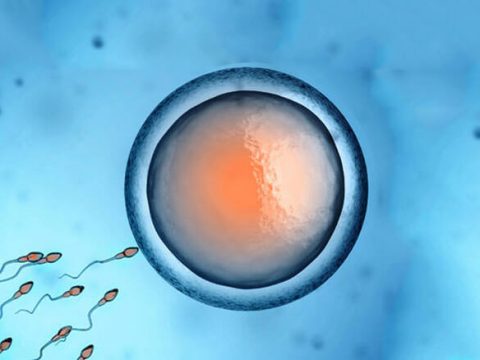Male Infertility is a very common but often misunderstood issue. When a man discovers that he has fertility problems, it is normal for him to feel angry, sad, shocked or a combination of all three. As a man, it can be particularly tough to cope with infertility issues as you can often feel like you’ve let down your partner or that you are ‘less of a man’. So, it might help to know that half of infertility cases are caused, at least in part, by male problems. You’re not alone.

What is pcos?
December 20, 2019How Common is Male Infertility?
Around 1 in 7 couples struggle to conceive naturally in the UK. It is greatly understood that around 30% of these infertility issues are due to known male factors, 30% are due to known female factors and the remaining 40% are due to combined or unexplained causes. Whatever you might have thought, heard or read, you are not the only man suffering with infertility issues and there is support and treatment available to you.
What Causes Infertility in Men?
Infertility in men is caused by various factors but it is sometimes unexplainable. The most common cause of male infertility is low sperm count, sperm that have reduced motility or sperm that have an uncharacteristic shape. In such cases, it can be difficult for sperm to fertilise the egg. Testicular damage, sterilisation, ejaculation disorders, repeat urinary tract infections, a history of sexually transmitted diseases and lifestyle choices can be other causes of male infertility.
How is Male Infertility Diagnosed?
Most important aspect of male infertility testing is the semen analysis. This allows a thorough insight into the quality and health of your sperm to help determine the causes of infertility and available fertility treatments suitable to you. Sometimes blood tests can reveal hormonal problems that can affect your sperm quality and checks for infections are also useful.
How is Male Infertility Treated?
Male infertility is most often treated by conventional methods that include one or more of the following:
- Taking medications, such as gonadotrophins, to help increase sperm production
- Taking antibiotics to treat an infection
- In rare cases of hypothalamic hypogonadotrophism, hormones are taken to improve hormone imbalance.
Fertility Treatments
OXRM is a leading specialist in reproductive medicine, providing effective treatments to help improve your fertility. For men with infertility problems struggling to have a family through natural conception, OXRM offers various fertility treatment options, such as:

IVF (In Vitro Fertilisation)
In cases of male infertility, IVF (In Vitro Fertilisation) may also be used. IVF is a common fertility treatment whereby the woman’s egg and male’s sperm are fertilised in laboratory before being transferred into the woman’s uterus. IVF can either be carried out using conventional IVF techniques or by ICSI.

ICSI (Intracytoplasmic Sperm Injection)
To facilitate fertilisation, ICSI can be used for couples suffering from male infertility. The man must provide a semen sample for the best quality sperm to be selected before being injected directly into the eggs, bringing both cells together for the highest chance of fertilisation.

IUI (Intra Uterine Insemination)
This is one of the most straightforward and simple fertility treatments available in all clinics. Sperm is prepared in the laboratory before being transferred directly into a woman’s uterus. This procedure increases the sperms chances of reaching the egg for fertilisation by reducing the travelling distance.
Can Male Infertility be Prevented?
Although there is usually nothing that can be done to prevent infertility caused by genetic problems or illness, there are preventions men can take to decrease the possibility of infertility. These include:
- Maintaining a healthy weight
- Avoiding exposure to radiation, when possible
- Avoiding exposure to toxic substances
- Avoiding frequent use of alcohol
- Keeping good personal hygiene and health practice
- Protecting against sexually transmitted diseases
- Having a healthy and balanced diet
If you are trying to get pregnant and you would like further resources or advice to support your efforts, we invite you to call us for further information.
When to See a Doctor
If you are concerned about your fertility and have been trying to conceive naturally with your partner for over one year, you should see your doctor for further advice. After this, we would recommend you visit our fertility experts. We can provide all the necessary tests in our state-of-the-art laboratories to help find an answer for you. Our consultants, nurses and embryologists all specialise in the field of Fertility and Reproductive Medicine and would be more than happy to offer you support.
Counselling
When it comes to male infertility, there is no getting away from the feelings of failure, sadness, frustration and shock. If the issue does lie with you, it can also lead to feelings of guilt that you’re the reason your partner is going through the process of IVF. There is no shame in feeling this way but it is important you have someone to talk to. Which is why, here at OXRM, our clinics offer professional counselling services. We recommend these counselling sessions to anyone going through infertility as it gives you the space to talk through your concerns with a trained therapist.






